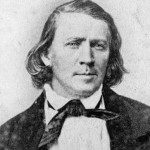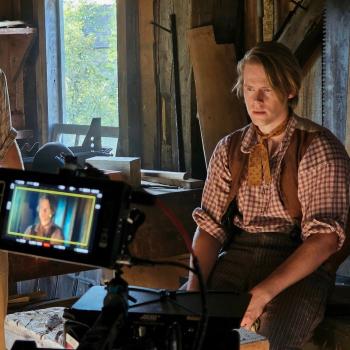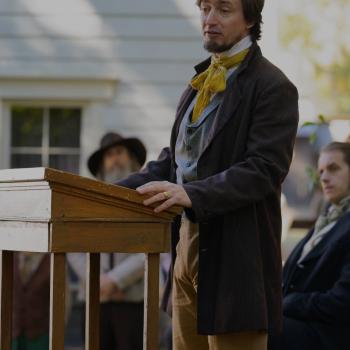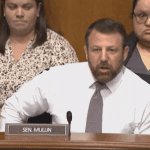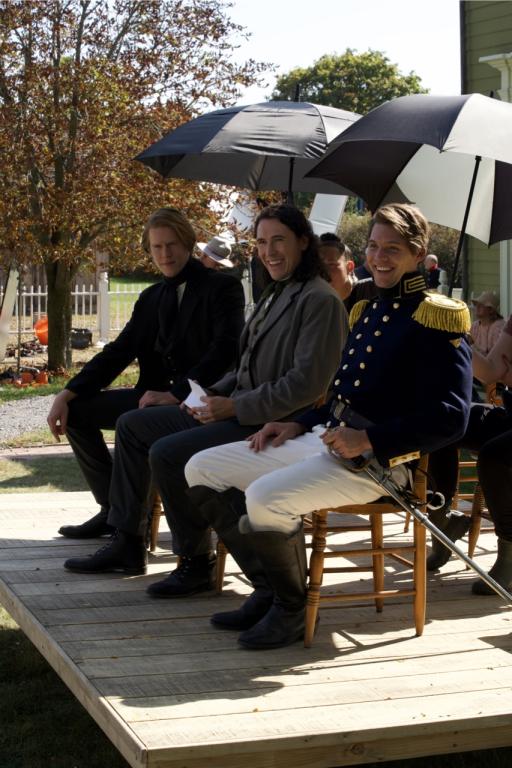
The passing of President M. Russell Ballard of the Twelve represents the departure of a long-familiar figure from Church leadership. He had been a General Authority since 1976 (nearly half a century), and an apostle for thirty-eight years, since 1985. With his death, Elder Jeffrey R. Holland becomes the senior apostle within the Quorum. But Elder Holland’s health still appears to be poor, and that may mean that effective leadership of the Twelve will fall to Elder Dieter F. Uchtdorf. I respect Elders Ballard, Holland, and Uchtdorf, and I pray for them and for their families. All have had a significant impact on the Church at large and on me, personally.

I published a blog entry here yesterday under the title “Some Thoughts on Reading about Brigham Young.”
It was a brief response to a crude characterization of Brigham Young, by one poster elsewhere, as a homicidal tyrant and a bully, and to a list of four nineteenth-century anti-Mormon exposés that were offered by another poster in support of that crude characterization. Was Brigham, by our enlightened and educated twenty-first-century standards, a rough-spoken frontiersman whose rhetoric and whose views on race and criminal justice and many other issues sometimes jar us? Absolutely. But that’s only part of the truth about him.
In turn, my response suggested five books. One of those is a direct (though very funny) rebuttal to the first of the four exposés that had been recommended. Two are admiring portraits of Brigham Young and his thought by major figures in modern Latter-day Saint writing, Hugh Nibley and Eugene England, who clearly did not view him crudely as a homicidal tyrant and a bully. The other two are academic biographies by respected professional historians, Leonard Arrington and Thomas Alexander (a friend, whom I interviewed at length a few months ago for our projected Six Days in August docudrama), both of which were published by non-LDS presses and neither of which can fairly be classed as an uncritical hagiography.
This appears to have inflamed the first poster into repeating his crude characterization of Brigham Young as a homicidal tyrant and a bully with renewed emphasis — and accompanied, this time, by a litany of cherry-picked quotations from John G. Turner’s Brigham Young: Pioneer Prophet to support his characterization. And it scarcely needs to be said that others there have joined in the chorus of indignation. (Did the sun rise this morning? Is water wet?)
Among other things, Poster One faults me for my apologetic lack of balance on the topic of Brigham Young — which, I’ll merely say, strikes me as quite ironically funny and which made me laugh aloud — and for failing to mention John Turner’s biography of Brigham, which does indeed take a somewhat more negative view of its subject than Arrington and Alexander do.
I’ll respond quickly to that criticism:
- First of all, my list of suggested readings was explicitly not intended as exhaustive. “These are books about Brigham Young that have been on my mind of late,” I wrote. “Of course, there are many more, and I will probably be making further recommendations in the months to come.”
- John Turner’s book will almost certainly be among those recommendations. While I don’t find it without flaw, I think it valuable. Moreover, I know and like John Turner. I traveled to Virginia several years ago specifically in order to interview him for our docudrama Undaunted: Witnesses of the Book of Mormon, and he is, in fact, one of the non-LDS scholars who appear in that film. I simply want to re-read his biography. And I still have time for that.
- As I also said in yesterday’s blog entry, “A full-orbed view of any given historical topic must pay attention to negative and critical accounts. Of course. But it isn’t obliged to give them full faith and credit.” And I do, yes, think that depicting Brigham Young as a homicidal tyrant and a bully is simplistic and unjust.
Poster One also faults me for the pseudonym, “Earnest Soul,” by which I referred to Poster Two. Of course, one can disagree about that choice of pseudonyms but, on the whole, I try to avoid the game of Internet Debate as Destructive Personal Vendetta. I have, for example, known the real-life personal identities of both Poster One and Poster Two for many years, but I don’t use them. And I tend to avoid using even their online pseudonyms. (Yes, they themselves use pseudonyms.) In discussions of issues, it’s not, for me, primarily or even secondarily about the people discussing them — although it is indisputably interesting, sometimes, to ask why people hold the particular, and occasionally the peculiar, views that they do.
The Six Days in August film project will, by the way, not get much into the Utah period of Brigham Young’s life, if it does so at all. Even in the more expansive docudrama that we envision to accompany the theatrical film, it is focused on the succession crisis that came to a head in August 1844, and on events leading up to that historical moment. And it’s not even focused, solely, on Brigham Young. So those critics who are predicting that we won’t mention the Mountain Meadows Massacre, Brigham Young’s attitudes toward slavery and the Civil War, and similar matters are quite correct. We won’t. There will also likely be no allusions to Utah statehood, the First World War, or the Great Depression.
As I envision it, though, the overall Six Days in August project will absolutely take aim, albeit mostly implicitly and indirectly, at the crude characterization of Brigham Young as a homicidal tyrant and a bully. I believe that depiction of him to be historically unsustainable, as well as a harmfully false, unjust, and nasty caricature.
If you want to contribute to the Six Days in August film project, I encourage you to do so. Where possible, please indicate explicitly whether you want your donation to go to the general Interpreter Foundation fund, or to Six Days in August, or, for that matter, to the Foundation’s Not by Bread Alone film project. On which, see this brief new article: Not By Bread Alone: Off and Running – But to Where? Blog Post #1.


